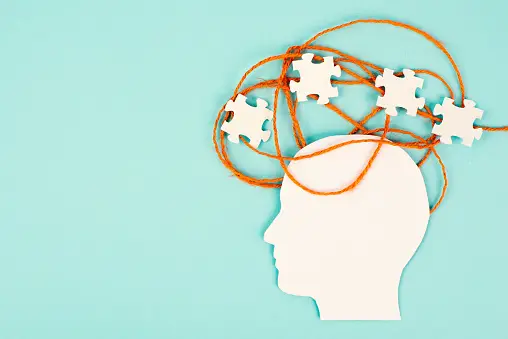Beyond Prescription: Natural Adderall Alternatives for ADHD

Attention Deficit Hyperactivity Disorder (ADHD) is a prevalent condition affecting both children and adults. While medications like Adderall are commonly prescribed to manage symptoms, some individuals seek natural alternatives due to potential side effects or a desire for holistic approaches. This article explores various natural alternatives to Adderall for ADHD symptoms.
Understanding ADHD and the Role of Adderall
ADHD is characterized by symptoms such as inattention, hyperactivity, and impulsivity. Adderall, a stimulant medication containing amphetamine and dextroamphetamine, is often prescribed to help increase focus and reduce impulsive behavior by altering the levels of certain natural substances in the brain. However, concerns about dependency, side effects like insomnia, increased heart rate, and potential long-term health impacts lead many to explore natural options.
Natural Alternatives to Adderall
1. Dietary Changes
A balanced diet can significantly influence ADHD symptoms. Certain nutrients are essential for brain health and can aid in symptom management.
- Omega-3 Fatty Acids: Found in fish oil, flaxseed, and walnuts, omega-3 fatty acids are crucial for brain function. Studies suggest that omega-3 supplements can improve cognitive function and reduce ADHD symptoms.
- Protein-Rich Foods: Consuming lean meats, beans, nuts, and eggs helps stabilize blood sugar levels, which can affect attention and focus.
- Complex Carbohydrates: Foods like whole grains, vegetables, and fruits provide a steady release of energy, helping to maintain consistent blood sugar levels and improve concentration.
2. Herbal Supplements
Several herbal supplements have shown promise in managing ADHD symptoms naturally.
- Ginkgo Biloba: This ancient herb is believed to enhance cognitive function and improve attention and memory by increasing blood flow to the brain.
- Ginseng: Often used in combination with Ginkgo Biloba, ginseng may help improve mental clarity and focus.
- Bacopa Monnieri: Known for its cognitive-enhancing properties, Bacopa Monnieri may improve attention, memory, and learning.
3. Mindfulness and Meditation
Mindfulness and meditation practices can help improve attention, reduce impulsivity, and enhance emotional regulation. Techniques such as deep breathing, progressive muscle relaxation, and guided imagery can help individuals with ADHD manage stress and improve focus.
- Mindfulness Meditation: Regular practice of mindfulness meditation can increase attention span and reduce symptoms of anxiety and depression often associated with ADHD.
- Yoga: Incorporating yoga into a daily routine can improve concentration, reduce hyperactivity, and enhance overall well-being.
4. Behavioral Therapy
Behavioral therapy is an effective non-pharmacological treatment for ADHD. It involves working with a therapist to develop strategies for managing symptoms and improving functioning.
- Cognitive Behavioral Therapy (CBT): CBT helps individuals recognize and change negative thought patterns and behaviors, leading to improved self-control and problem-solving skills.
- Parent Training and Education Programs: For children with ADHD, parent training programs can teach effective strategies for managing their child’s behavior and supporting their development.
5. Exercise
Regular physical activity has numerous benefits for individuals with ADHD. Exercise increases dopamine, norepinephrine, and serotonin levels in the brain, which play a key role in attention and mood regulation.
- Aerobic Exercise: Activities like running, swimming, and cycling can help reduce hyperactivity and improve focus and mood.
- Martial Arts and Team Sports: These activities promote discipline, structure, and social interaction, which can be particularly beneficial for children with ADHD.
6. Adequate Sleep
Ensuring adequate sleep is crucial for managing ADHD symptoms. Lack of sleep can exacerbate inattention, impulsivity, and hyperactivity. Establishing a regular sleep routine and creating a calming bedtime environment can help improve sleep quality.
- Sleep Hygiene Practices: Consistent bedtimes, reducing screen time before bed, and creating a relaxing bedtime routine can promote better sleep.
- Addressing Sleep Disorders: Consulting with a healthcare professional to address any underlying sleep disorders can also improve ADHD symptoms.
Conclusion
While prescription medications like Adderall are effective for many individuals with ADHD, natural alternatives can offer additional support and potentially fewer side effects. A holistic approach, incorporating dietary changes, herbal supplements, mindfulness practices, behavioral therapy, exercise, and adequate sleep, can help manage ADHD symptoms effectively. It is essential for individuals to consult with healthcare professionals before making any significant changes to their treatment plan to ensure the chosen methods are safe and appropriate for their specific needs.
Natural alternatives may not work for everyone, and some individuals may require a combination of medication and holistic approaches to achieve optimal results. Nonetheless, exploring these options can provide a broader range of tools for managing ADHD and improving quality of life.



